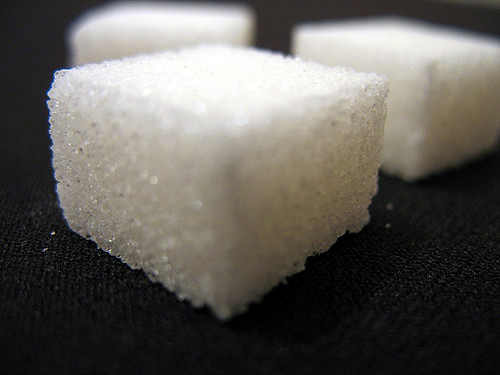Cough medicines and lozenges are loaded with refined sugars that increase blood sugar levels
03/29/2017 / By Earl Garcia

Popular cough lozenges and vitamin chews can increase your blood sugar levels. In a recent analysis, DailyMailOnline.com claims that alleviating your cough symptoms with these products can actually lead to an increased risk for sugar-related diseases.
Cough and cold Rx deliberately add hidden sugar
The analysis compared the sugar content of seven popular cough remedies against that of Maynards wine gums. The popular British candy, which was used as a control variable, contains about 3.5 grams of sugar per piece. Below are the results of the survey:
- Halls Soothers – Halls Soothers with honey and lemon contains a little more than 40 grams of sugar per pack. Each pack contains 10 lozenges, with each soother containing four grams of sugar. This means that if you ate all six of them, you have already gone way beyond the 25 grams daily sugar allowance recommended by the World Health Organization (WHO). According to Dr. Sarah Schenker, manufacturing firms should put more focus on labeling as this would educate people of their sugar intake and help them make informed choices. Renowned author Christianne Wolff expressed a similar sentiment, and stated the inflammatory effects of sugar on the body. Wolff was the best selling author of a book entitled The Body Rescue Plan.
- Boots Glycerin and Blackcurrent Linctus – Adults using this cough remedy can have a 10-mL dose taken by as much as four times a day. However, each 10-mL dose contains as much as 6.9 grams of sugar. Taking the cough treatment four times a day means ingesting as much as 27.6 grams of sugar.
- VitaFusion Calcium for adults – According to the manufacturer’s label, taking up to two chewables daily could meet the calcium equivalent of two glasses of milk, and the vitamin D content of three ounces of salmon. Ironically, each chewable has three grams of sugar. Translation: taking two per day would meet about a quarter of WHO’s daily recommended sugar intake. “If you have too much sugar it can actually inhibit the absorption of calcium,” Wolff said. “It is worth bearing in mind that it takes a lot for a vitamin to taste nice therefore they are often made with strong flavorings and sugar help to disguise to natural taste,” Dr. Schenker added.
- Metatone Original Flavour Tonic – The tonic contains vitamin B1, which is essential in cold and flu recovery. Nevertheless, the product contains as much as 1.75 grams of sugar per 5-mL. Taking a 10-mL dose accounts for a little less than half of the WHO’s recommended daily sugar intake.
- Calpol Infant Suspension – Children are given as many as four doses per day, with each dose containing as much as 4.4 grams of sugar. Giving young patients the maximum dose will result in a total sugar consumption of 17.6 grams. [RELATED: Children’s Consumption of Artificial Sweeteners Has Officially Hit a 200% Increase]. “The government recommends no more than 19 grams of sugar for children aged four to six,” Wolff said. A representative from Calpol defended its use of additional sugars, stating that doing so improves the medicine’s palatability Paracetamol tastes very bitter and may result in subsequent inaccurate dosing, the representative explained. A sugar-free alternative is currently available in the market, the representative added.
- Hairburst Strawberry Chewable Vitamins – The product’s website currently does not contain information on its sugar content. However, the study noted that glucose syrup, sugar and dextrose can be seen in the list of its ingredients.
100% organic essential oil sets now available for your home and personal care, including Rosemary, Oregano, Eucalyptus, Tea Tree, Clary Sage and more, all 100% organic and laboratory tested for safety. A multitude of uses, from stress reduction to topical first aid. See the complete listing here, and help support this news site.
Sources:
Tagged Under: added sugars, Cough, drugs




















